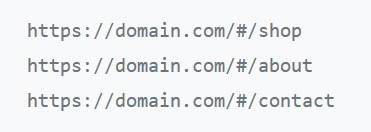If you’re a web developer, you’ve probably heard about the benefits of using React. But if you haven’t yet tried it, it can be hard to get started. In this article, we’ll cover some best practices for making your React website SEO-friendly so that your site will rank well in search engines like Google and Bing.
Isomorphic React Apps
With isomorphic JavaScript, you could work with React JS software and fetch the rendered HTML report that’s commonly rendered through the browser. This HTML report is being performed for everybody who attempts to look for the unique app, in conjunction with Google bots.
When it involves client-aspect scripting, the software can use this HTML report and continue to function the identical on the browser. The information is added using JavaScript if required, the isomorphic app still stays dynamic. Isomorphic programs make sure that the customer is able to perform the scripts or not. While JavaScript isn’t always active, the code is rendered on the server, and the browser can fetch all of the meta tags and text in HTML and CSS files.
However, growing real-time isomorphic programs is such a difficult and complicated task. But in Isomorphic apps, these frameworks can make the system faster and simpler: Gatsby and Next.js.
Gatsby is an open-source compiler that permits developers to create robust and scalable web applications. But its largest issue is that it does not provide server-side rendering. It generates a static website after which creates HTML files to save it in the cloud.
Next.js is the framework of React that allows developers create React programs without any hindrance. It also allows automated code splitting and hot code reloading, too.

Pre-rendering
Before we get into the best practices, let’s talk about what pre-rendering is.
Pre-rendering is when you create a template for your site and then render it on both the client and server. The idea behind this strategy is that by rendering on both ends of the process, it makes it easier to scale up or down as needed. For instance, if someone views your website from their phone, they don’t need all of those fancy features.
One of the biggest benefits of pre-rendering over just rendering on the client side alone is that there’s no need for complex code or libraries—just use React Native. You won’t have any issues with browser compatibility either since everything will run through NodeJS instead of being processed in each individual browser tab like with other types of JavaScript frameworks like Angular 2/4 etc.
Building static or dynamic web applications
Static web applications are easier to maintain, scale and secure. They are also faster as they don’t need a database or a server to run on. The most important thing about static websites is that they don’t contain any code which can be changed easily by hackers. That means that if you build a website using React, you will have less chances of vulnerability than building one with Angular or VueJS or any other framework.
URL case
Google bots always consider some pages separate when their URLs have lowercase or uppercase see: /Invision and /invision.
Now, these two URLs will be considered different due to the difference in their case. For avoiding these common blunders, always try to generate your URL in lowercase.
404 Code
Be it any page with an error in the data, they all run a 404 code. So, try to set up files in server.js and route.js as soon as you can. Updating the files with server.js or route.js can relatively augment traffic on your web app or website.
Try not to use hashed URLs
Well, this is not the major issue but the Google bot does not see anything after the hash in URLs. For example:

Google bot is generally not going to see it after the hash, https:/domain.com/ is enough for the bot to crawl it.
Use <a href> only if required
A general error with SPAs is using a <div> or a <button> to change the URL. This is not a problem with React itself, but how the library is used.
But the issue is about the search engines, Google bots process a URL, and they search for more URLs to crawl within <a href> elements.
If the <a href> element is not found, Google bots will not crawl the URLs and pass PageRank.
What we can do is we can define links with <a href> for the Google bot to see the fetch the other pages and go through them.
Final Thoughts
The higher a website ranks, the more traffic it gets and ultimately, the better chances of conversion. If you’re looking for JavaScript libraries that allow your website to be SEO-Friendly, the React JS should be your top choice.
The post React Websites: Tips to Make Them SEO-Friendly appeared first on Creativ Digital.
from Creativ Digital https://ift.tt/JFN4z1e
No comments:
Post a Comment